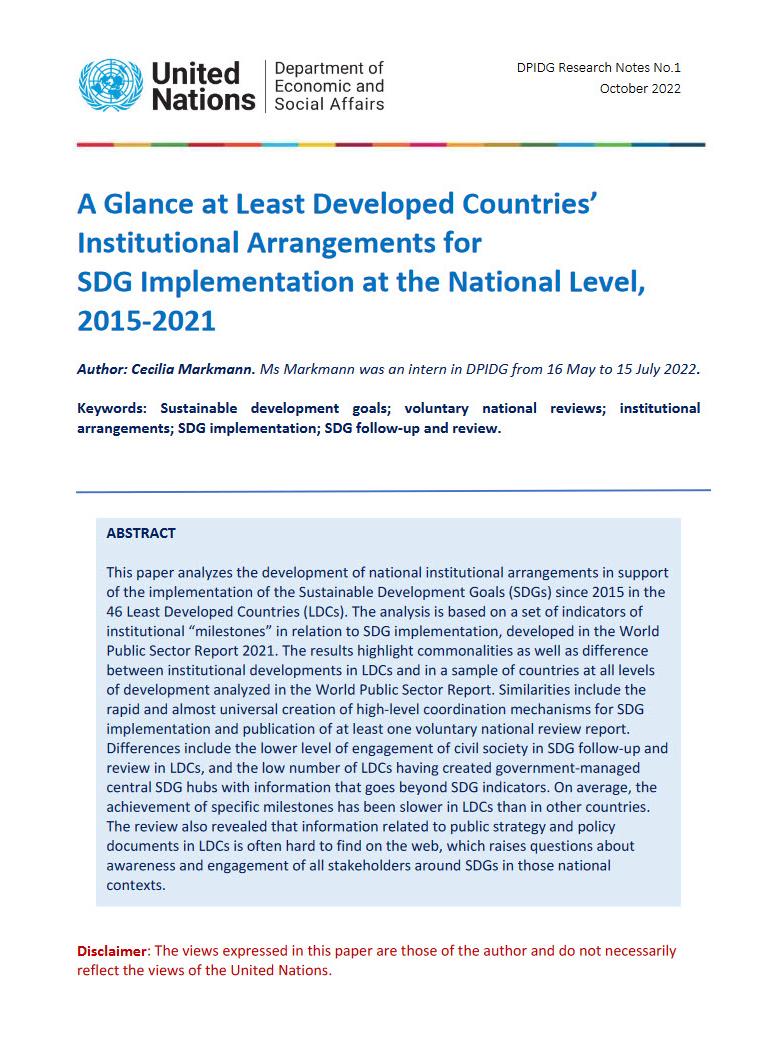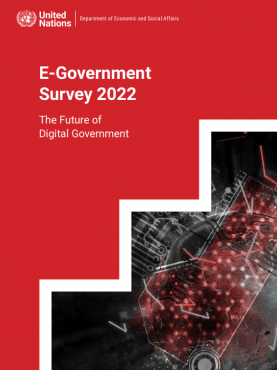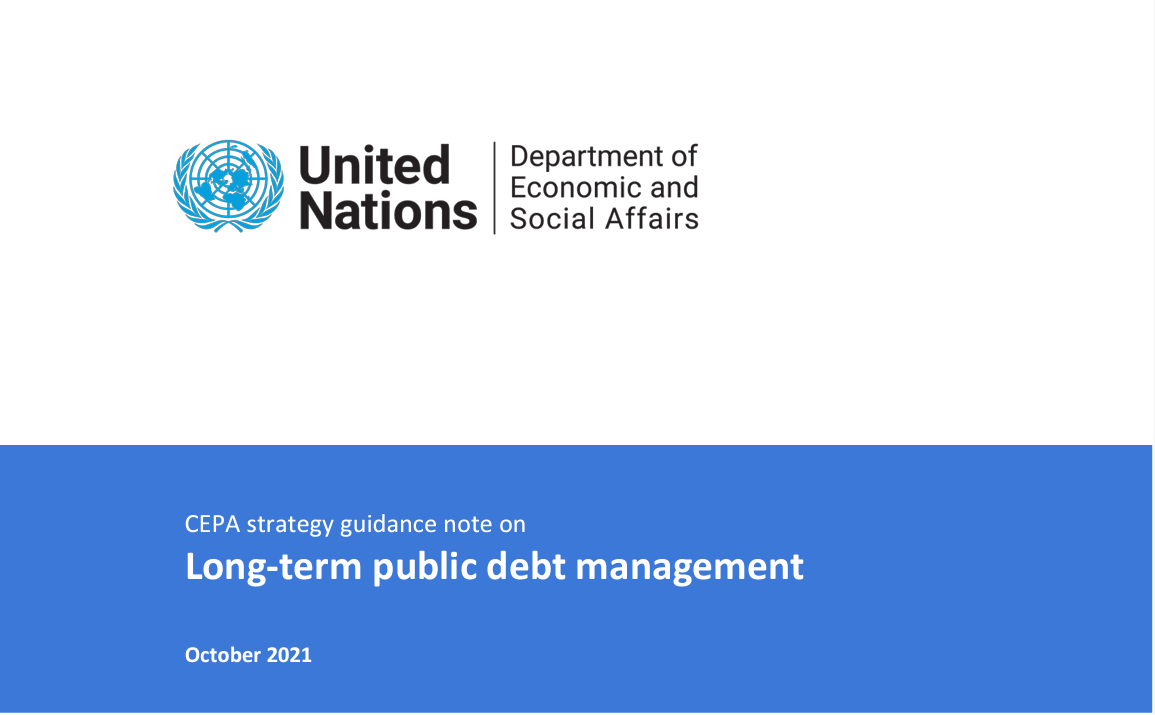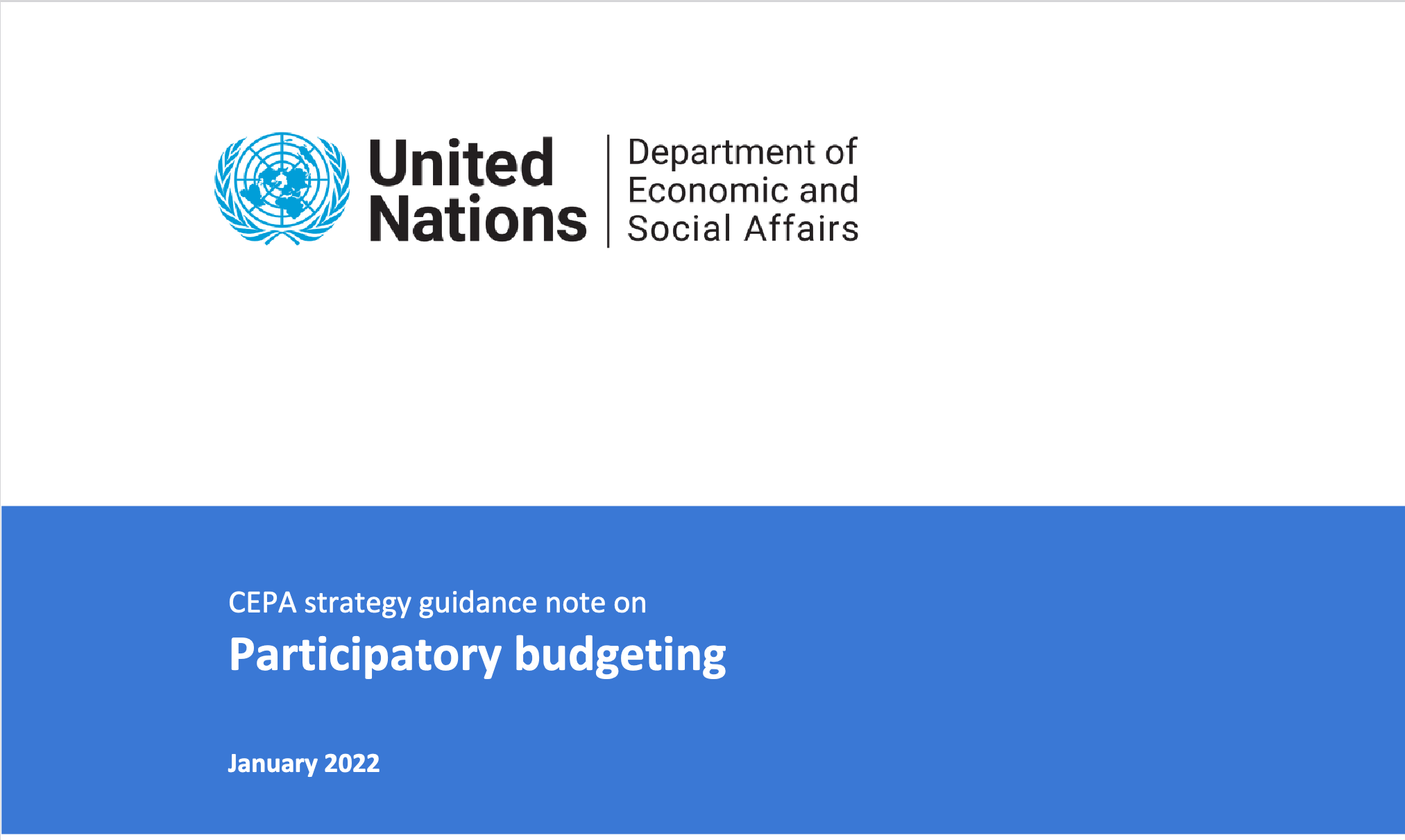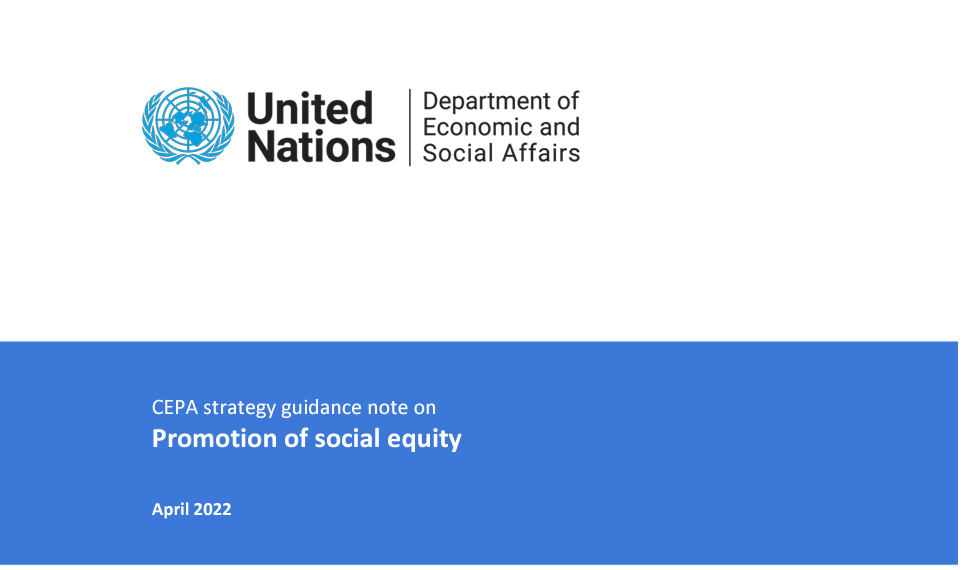| Policy Briefs | Digital Government | Public Institutions | Public Service Innovation
UN/DESA Policy Brief No. 139: Strengthening Disaster Risk Reduction and Resilience for Climate Action through Risk-informed Governance
Strengthening Disaster Risk Reduction and Resilience for Climate Action through Risk-informed Governance
Key Messages
Governments that consider risk in policymaking and successfully integrate risk management into their governance frameworks and…
| Research Notes | Public Institutions
A Glance at Least Developed Countries’ Institutional Arrangements for SDG Implementation at the National Level, 2015-2021
This paper analyzes the development of national institutional arrangements in support of the implementation of the Sustainable Development Goals (SDGs) since 2015 in the 46 Least Developed Countries (LDCs). The analysis is based on a set of…
| Research Notes | Digital Government
E-government for Resilient Governance: Opportunities and Challenges in Crises
This paper analyses how governments’ digitalization influences the resilience of governance in context of crises. The first part explores the concept of institutional resilience and draws a picture of how data and the Internet can contribute to…
| UN E-Government Surveys | Digital Government
UN E-Government Survey 2022
The United Nations E-Government Survey 2022 is the 12th edition of the United Nations’ assessment of the digital government landscape across all 193 Member States. The E-Government Survey is informed by over two decades of longitudinal research,…
| Handbooks | Digital Government | Public Service Innovation
Handbook on how to design and implement One-stop-Shops to promote better service delivery and implement the Sustainable Development Goals
This Handbook, prepared by UN DESA/DPIDG, provides local and national governments with a set of conceptual approaches, practical strategies, and tools to improve the delivery of public services through citizen centric One-stop-Shops (OSS). It…
| SDG 16 Conference Reports | Public Institutions
SDG 16 Conference 2022 Report
The report of the 2022 SDG 16 Conference on people-centred governance in a post-pandemic world is now available. The Conference, co-organized by UN DESA, the International Development Law Organization and the Government of Italy and held in April…
| Policy Briefs | Public Institutions
UN DESA Policy Brief No. 136: Promoting non-discrimination in public administration: some entry points
Promoting non-discrimination in public administration: some entry points
Key messages
Public administration can both serve as a vehicle for discrimination and provide channels to address it.
Research is needed, in particular from developing…
| Capacity Development Reports | Transformational Leadership and New Mindsets
Outcome Report of the Peer-to-Peer Learning International Workshop
The Peer-to-Peer Learning International Workshop on Public Service Training Assessment Framework for Strengthening Capacities of Public Servants to Support SDG Implementation was held under the responsibility of Juwang Zhu, Director of the Division…
| CEPA Strategy Guidance Notes | Principles of Effective Governance
CEPA strategy guidance note on long-term public debt management
This guidance note discusses the role of long-term public debt management as a strategy to promote sustainable development and intergenerational equity within the context of the 2030 Agenda.
| CEPA Strategy Guidance Notes | Principles of Effective Governance
CEPA strategy guidance note on participatory budgeting
Participatory budgeting (PB) broadly refers to the many ways in which the general public is able to interact directly with government in the design and implementation of budgetary and…
| CEPA Strategy Guidance Notes | Principles of Effective Governance
CEPA strategy guidance note on promotion of social equity
The promotion of social equity is one of the strategies for leaving no one behind, and can be understood as fairness, justice and greater equality for all in society. Achieving equity relies on an active commitment to these aims through the…
| Capacity Development Reports | Digital Government | Public Service Innovation | Transformational Leadership and New Mindsets
Report on Innovation, Digital Government and Changing Mindset for Public Sector Transformation in Guyana to Achieve the SDG
The Report highlights the key concepts and recommendations that emerged from the Training Workshop on “Innovation, Digital Government and Changing Mindset for Public Sector Transformation in Guyana to Achieve the SDGs” organized by the United…
 欢迎来到联合国,您的世界!
欢迎来到联合国,您的世界!

